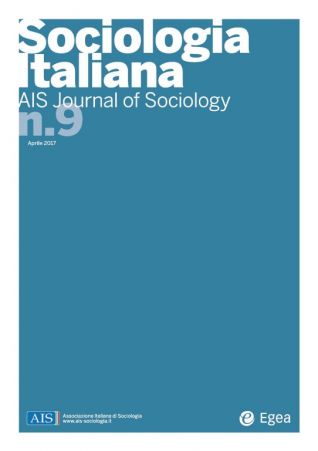AIS
2017/9
Il conflitto nell’età psicotica (e la responsabilità della comunità dei sociologi) (Conflict in the psychotic age (and the responsibility of the sociological community)), di Mauro Magatti
Il testo propone alcune considerazioni sull’assenza – o, meglio, la mancata espressione – del conflitto che si accompagna all’aumento delle disuguaglianze ed ai crescenti fenomeni di disagio sociale e malessere individuale nelle società contemporanee. Da un lato, si sviluppano forme di individualizzazione del conflitto e, dall’altro, prendono corpo e consistenza gruppi anti-establishment, connotati in senso autoritario, che possono essere interpretati come epifenomeni di sistemi sociali di tipo psicotico (Barbetta), generati da vent’anni di messa in questione del legame sociale. La ricostruzione di tale legame è la sfida posta dalla società psicotica alla riflessività sociologica, che chiama in causa la nostra responsabilità come comunità di sociologi.
Conflict in the psychotic age (and the responsibility of the sociological community)
The text offers various considerations on the absence - or rather, the lack of expression - of conflict accompanying the increase in inequalities and the phenomena of social hardships and individual malaise in contemporary societies. On the one hand this leads to forms of individualization of conflict, while on the other we can observe the formation of anti-establishment groups with authoritarian leanings. These phenomena can be viewed as epiphenomena of psychotic social systems (Barbetta), generated by twenty years of challenging the social bond. Reconstructing this bond is the challenge that the psychotic society poses to sociological reflexivity, calling upon our responsibility as a community of sociologists.
Keywords: Conflitto sociale, Età psicotica, Disuguaglianze, Disagio sociale, Riflessività sociologica, Social conflict, Psychotic age, Inequalities, Social problems, Sociological reflexivity
DOI: 10.1485/AIS_2017/9_APRILE_3428153
Pagine 129-135
L'ACCESSO A QUESTO CONTENUTO E' RISERVATO AGLI UTENTI ABBONATI
Sei abbonato? Esegui l'accesso oppure abbonati.
